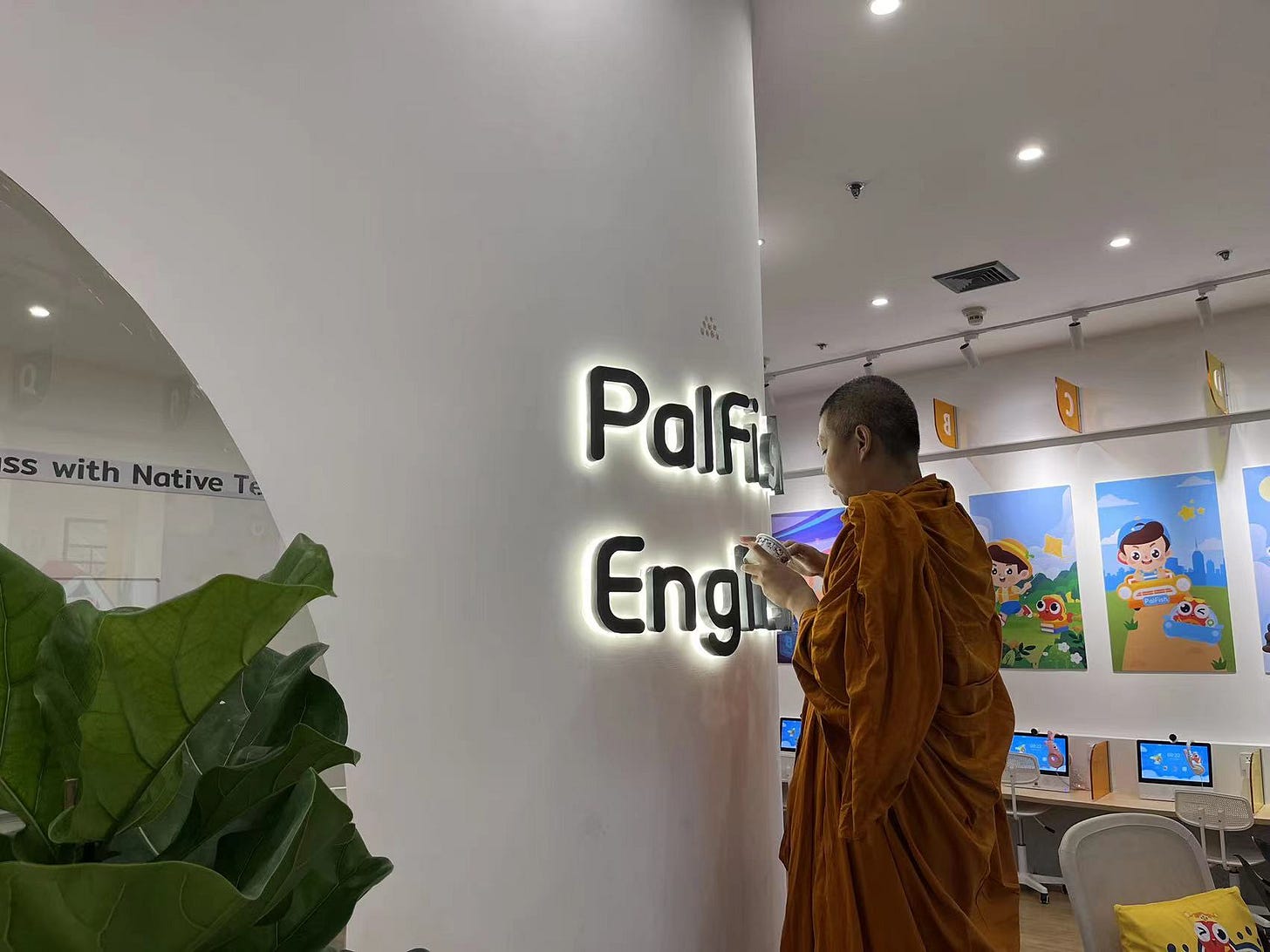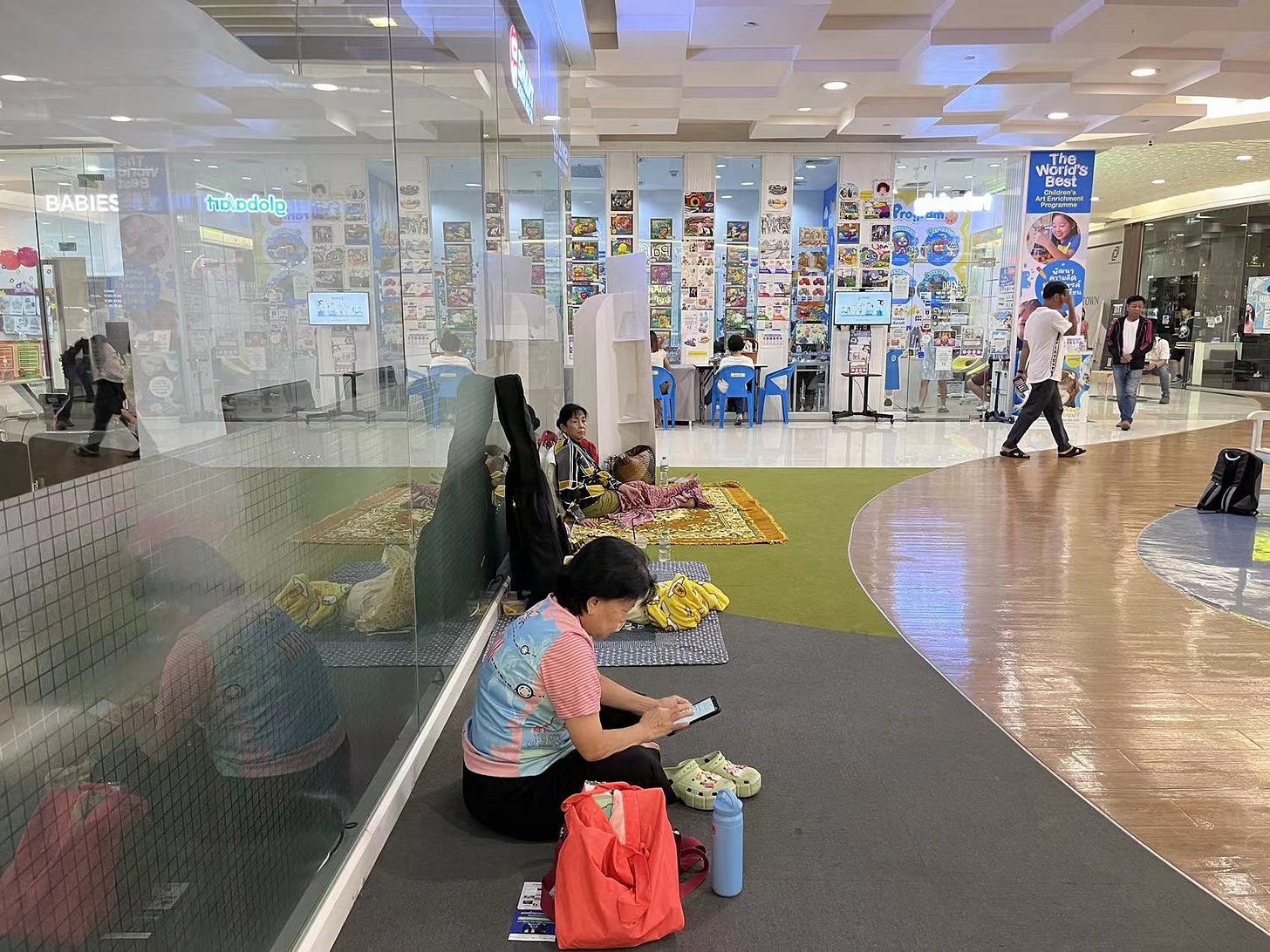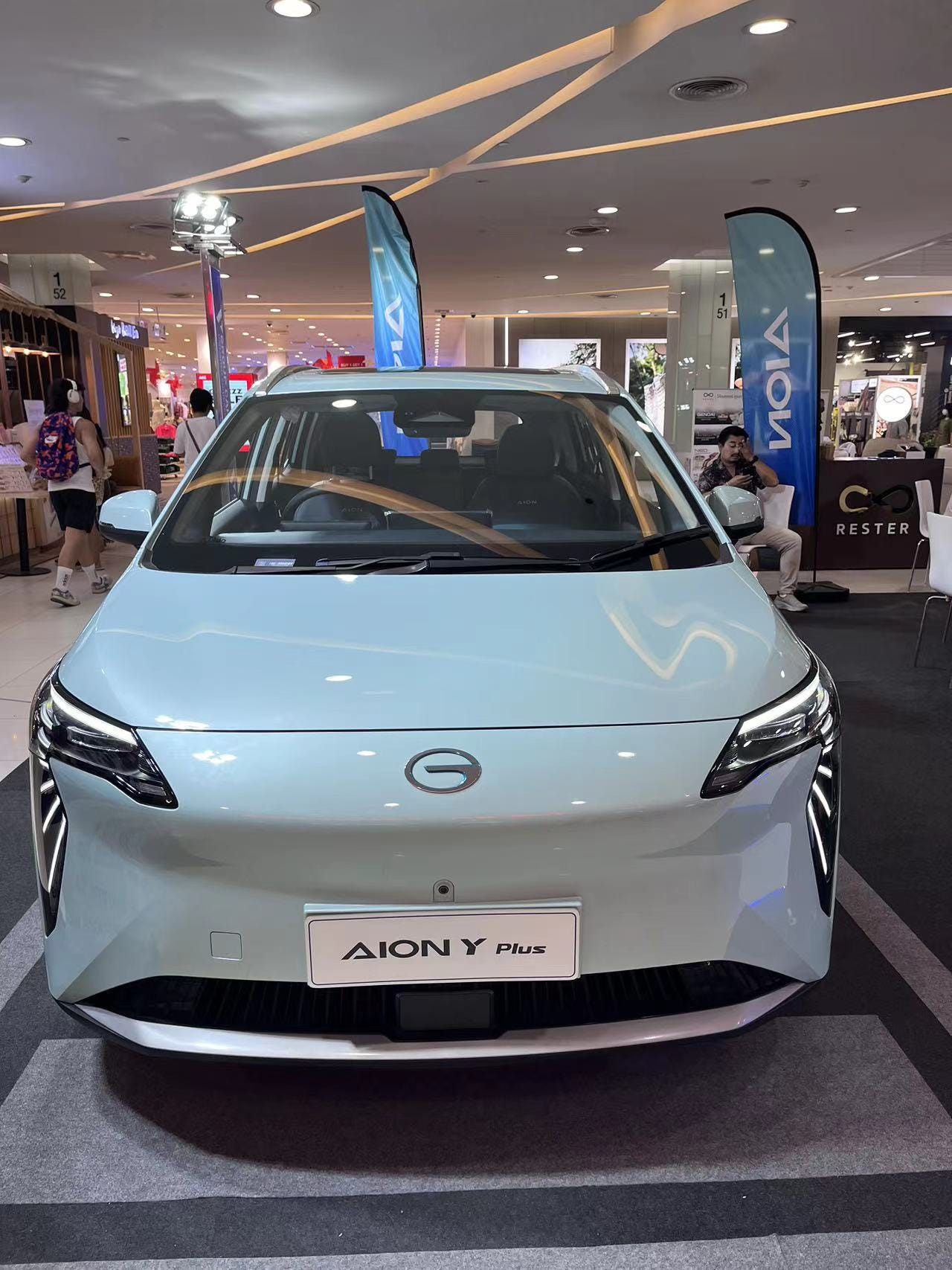From last Friday, I stayed in Bangkok for 4 days. After a year since my last visit, I felt that the ecosystem of Chinese firms in this city seems completely revitalized. I flew from Shenzhen Bao'an Airport, and in just over two hours, I landed at Suvarnabhumi Airport. Thanks to Thailand's visa exemption for Chinese travelers, I breezed through customs in about ten minutes, making the trip much easier. The short distance from Guangzhou to Bangkok is comparable to that to Chengdu, which helps Southern firms expand internationally.
The main purpose of my visit was to attend the opening of PalFish ’s first physical store in Thailand, located in a high-end shopping mall. PalFish is an education technology company founded in Beijing
This flagship store caters to Bangkok's middle and upper classes and is surrounded by more than 30 educational institutions, including English and K12 programs. PalFish is the first Chinese education company to set up shop here.
You might wonder why PalFish , which doesn’t have any offline stores in China, is making such a big move in Thailand. According to Li Xiao, their overseas head, they lead the online children’s English training market in Southeast Asia, particularly in Thailand. However, online growth is slowing down, and to make further progress, they need to expand offline. Many Chinese companies that have thrived online are now realizing that the real battleground in Southeast Asia is in physical locations.
After the opening ceremony, my host suggested we try Zhang Liang spicy hot pot at the top of the mall. It was my first time there, and ironically, it was in Bangkok, not China. The story took an interesting turn when the restaurant owner showed up—it was Mr. Cai, someone I had met during my entrepreneurial days in India. He owns this restaurant and several other brands, having moved from mobile internet to the food industry.
Similar to large malls in Jakarta, Bangkok has a dining scene dominated by Japanese, Korean, and Singaporean brands. However, Chinese tea brands are making a splash. Names like Heytea, Nayuki, MIXUE, Taning, Cotti Coffee and Luckin Coffee can now be found on the streets of Thailand.
While I was in Bangkok, I happened to see Lazada announcing its performance, with both Lazada and Shopee reporting their first profits. This suggests to me that Southeast Asian e-commerce is entering a new phase, with platforms becoming more cautious and expecting slower growth.
During the pandemic, local competition intensified, and TikTok’s entry drew many Chinese cross-border sellers. This surge helped various Chinese consumer brands emerge, especially in beauty. An insider mentioned that the online boom is leveling off; brands that heavily depend on online sales are facing challenges, as the old strategies of low costs and strong supply chains aren’t working as well anymore. In Thailand, competition is now more about product quality and distribution channels, and the brands likely to succeed are those with strong products, knowledge of the market, and financial backing.
These brands are quickly expanding into Thailand. The market is changing dramatically, with brands like Laifen and Ulike already making their mark, and even established names like Liby are preparing to enter. Both new and established Chinese consumer brands are no longer just focusing on online sales; they are entering a competitive landscape where they face giants like Unilever and Dyson.
One thing that struck me in Bangkok was not the battle of Chinese tea brands but the electric vehicles. Right outside the airport, I saw big billboards for BYD and GAC Aion. Over two days, I spotted nearly every domestic electric vehicle brand, including Neta, Xpeng, and Ora. I was even surprised to learn that SANY Heavy Industry plans to produce electric vehicles in Thailand. It’s clear that in the current wave of expansion into Thailand, tea and electric vehicles are the hottest sectors.
However, don’t be misled into thinking Chinese brands have everything figured out; Japanese cars still dominate 90% of the market. A long-time auto parts dealer in Thailand expressed both excitement and concern. He’s happy to see Chinese brands rising quickly but emphasized that the auto industry heavily relies on service—selling the car is just the first step; a strong after-sales system is crucial.
I’ve visited over 100 cities around the world, and Bangkok remains my favorite. Other cities I love include Cape Town, Kampala, and Washington, D.C. What makes Bangkok so special? Every time I visit, I find myself at a noodle shop near Phaya Thai station, enjoying a bowl of pork offal noodles by the roadside, savoring a moment of peace in the bustling city. It’s in foreign lands that we often gain clarity about our hometowns, and what I love about Bangkok is its vibrant street life—something that’s fading in many cities back home.
By @Jianlong Hu, Founder & CEO of








